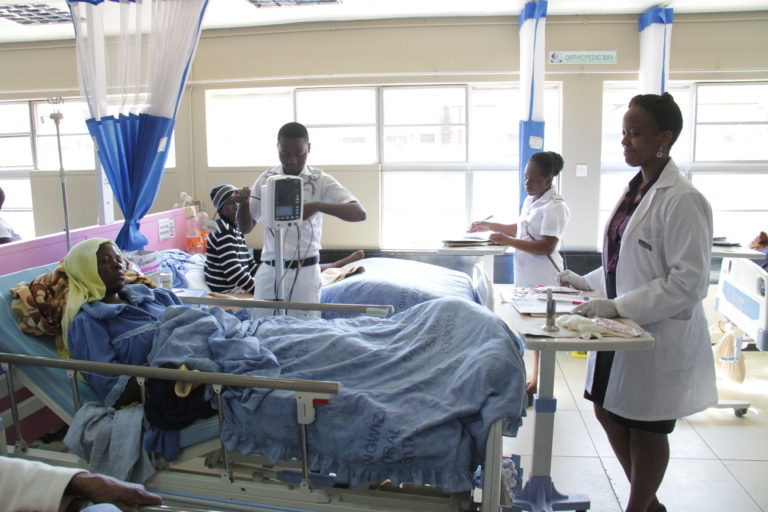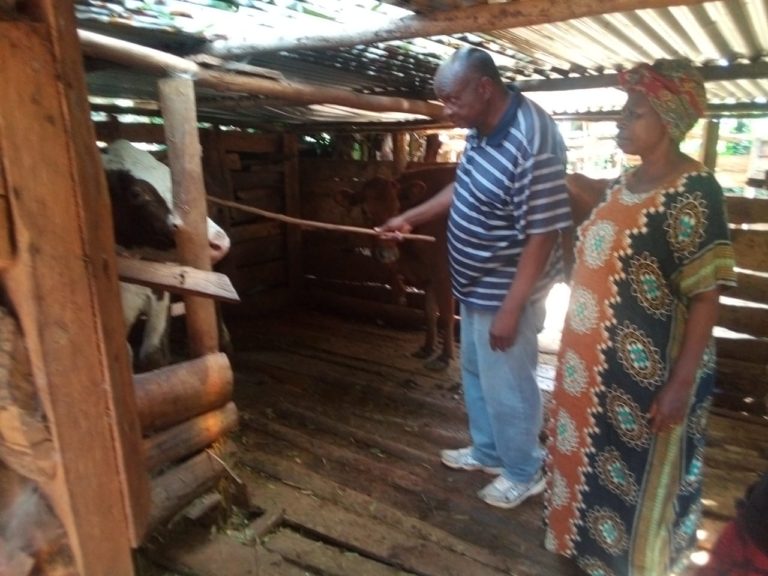Harare — Two years ago, his then 53-year old mother succumbed to colon cancer. A year later, his 24-year old sister was diagnosed with the same disease, yet earlier this year, 28-year old Tapfumaneyi Hwengwere also turned into another colon cancer patient in the family.
Hwengwere said now doctors have told him his cancer has reached stage four, meaning his case has leaped beyond redemption.
“I’m just taking medication to ease the pain although it’s clear my condition has gone beyond what the doctors can do to save my life,” Hwengwere told Ubuntu Times.
So, as Hwengwere and his sister contend with colon cancer, he (Hwengwere) said they find solace meeting many other cancer patients at the cancer clinics they often visit here.
According to Zimbabwe’s Cancer Registry, from 6,548 registered cases of cancer in 2013, figures have skyrocketed to 9,220 two years ago, with Hwengwere and his sister comprising the Southern African nation’s alarming cancer statistics.
Many Zimbabweans like Hwengwere and his sister bear the dreaded cancer illness at a time the country also faces the ravages of Coronavirus which has claimed over 200 lives since it struck this country.
Now, health experts here like Jason Utete, a private oncologist in Harare, the Zimbabwean capital have said as doctors they are attending to increasing cases of cancer on a daily basis.
“People are not aware of this; cancer cases we attend to daily are rising more than ever before; it’s scary,” Utete told Ubuntu Times.

Yet, with cancer deaths on a gradual rise in Zimbabwe, the country also suffers a scarcity of cancer specialists like Utete, who said owing to that, ‘prospects of detecting cancer early are minimal here.’
Meanwhile, Zimbabwe only has four cancer specialists, according to the country’s Ministry of Health and Child Care although the country is laden with over 7,000 cancer patients.
As such, besides the ravages wrought by Coronavirus, in Zimbabwe, cancer is gradually overtaking several deadly diseases, becoming the country’s number one killer.
Of the types of cancers that have become common among Zimbabweans, is colon cancer, which has affected many like Hwengwere and his sister, and even orphaned them after their widowed mother was killed by the same disease.
Even Zimbabwe’s young children have become victims of the deadly disease, according to this country’s Ministry of Health and Child Care, which has been on record in the media claiming over 700 underage children succumb to cancer each year.

As if that is not enough, an average of 5,000 new cancer cases are recorded annually, according to Zimbabwe’s National Cancer Registry, but more than 80 percent are only diagnosed at a very late stage.
“In both adults and young children here, cancer is often diagnosed late, which has resulted in rising cancer deaths in the country,” said doctor Utete.
Yet, more superstitious Zimbabweans like 73-year old Danisa Chambati who lives in Highfields high-density suburb in Harare has dismissed the existence of cancer, instead, scapegoating witchcraft for such diseases.
“There is nothing called cancer; people are bewitching each other, causing mysterious illnesses and deaths,” Chambati told Ubuntu Times.
But, despite his denial, Chambati’s children confirmed that their mother, his wife, in this case, was killed by colon cancer three years ago.

One of the children, 41-year old Letwin, who is a single mother living with the aging Chambati even claimed the father was suffering from prostate cancer, a condition she also claimed their father has frantically dismissed as untrue.
“Our father has prostate cancer, which is now at its advanced state, but even as doctors diagnosed him of the disease, he has vehemently stayed in denial, claiming that his illness is due to witchcraft in the family,” Letwin told Ubuntu Times.
As such, with many like Chambati clinging to myths related to cancer, many more Zimbabweans are perishing unknowingly to the disease.
In Zimbabwe, therefore, the rich and the poor, celebrities and politicians alike, are succumbing to cancer at an alarming rate.
On Valentine’s Day in 2018, Morgan Tsvangirai, Zimbabwe’s former Prime Minister in the government of national unity between 2008 and 2013, succumbed to colon cancer at a top medical center in neighboring South Africa.
Last year in September, former Zimbabwean President Robert Mugabe who ruled this country for closer to four decades, also succumbed to prostate cancer at Gleneagles Hospital in Singapore.

In 2014 alone, 2,474 people succumbed to cancer in Zimbabwe, and in the same year, 7,018 new cancer cases were recorded, this based on figures from the Cancer Association of Zimbabwe.
But, Zimbabwe’s few cancer specialists like Utete have said ‘such figures are only related to recorded cases in health institutions.’
To him (Utete) ‘most patients could be dying because of cancer within their homes without access to health services due to exorbitant costs.’
In fact, according to government officials, even killer diseases like AIDS in Zimbabwe are being outpaced by cancer as the top killer disease.
“Cancer has turned out to be the topmost killer than HIV and because of this, several people are shunning seeking cancer screening services because they fear to be found with the now dreaded disease which they say is difficult to be treated compared to HIV,” a top official in the Ministry of Health in Zimbabwe, told Ubuntu Times on condition of anonymity as she was unauthorized to speak to the media.
“Apparently, there is now a stigma tag to cancer illnesses, subsequently making it difficult to make sure cancer is diagnosed and treated early,” added the Zimbabwean government official.



















